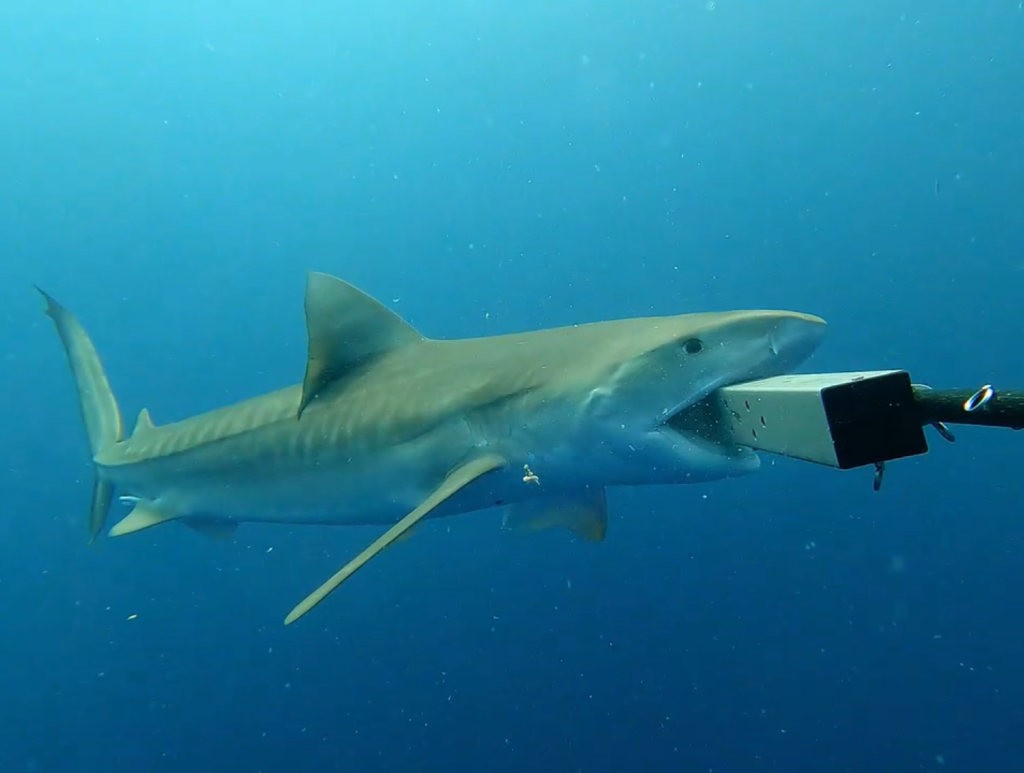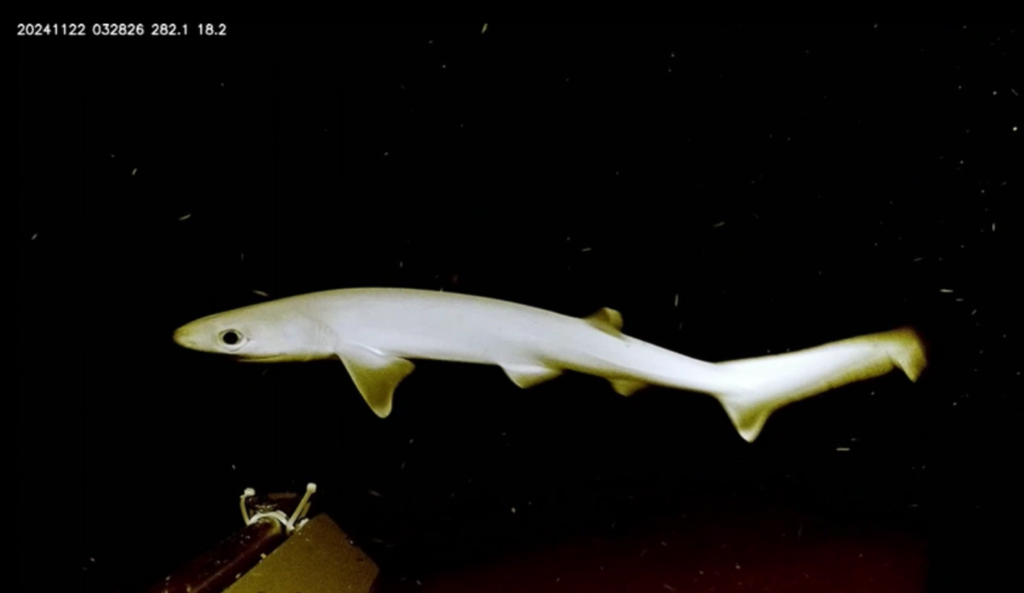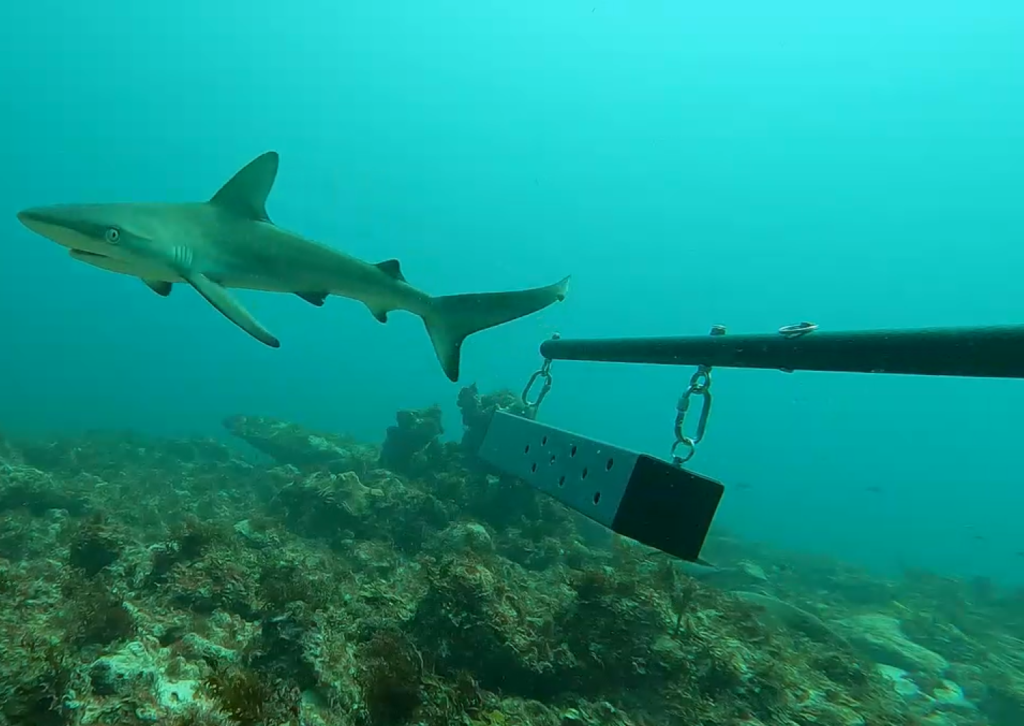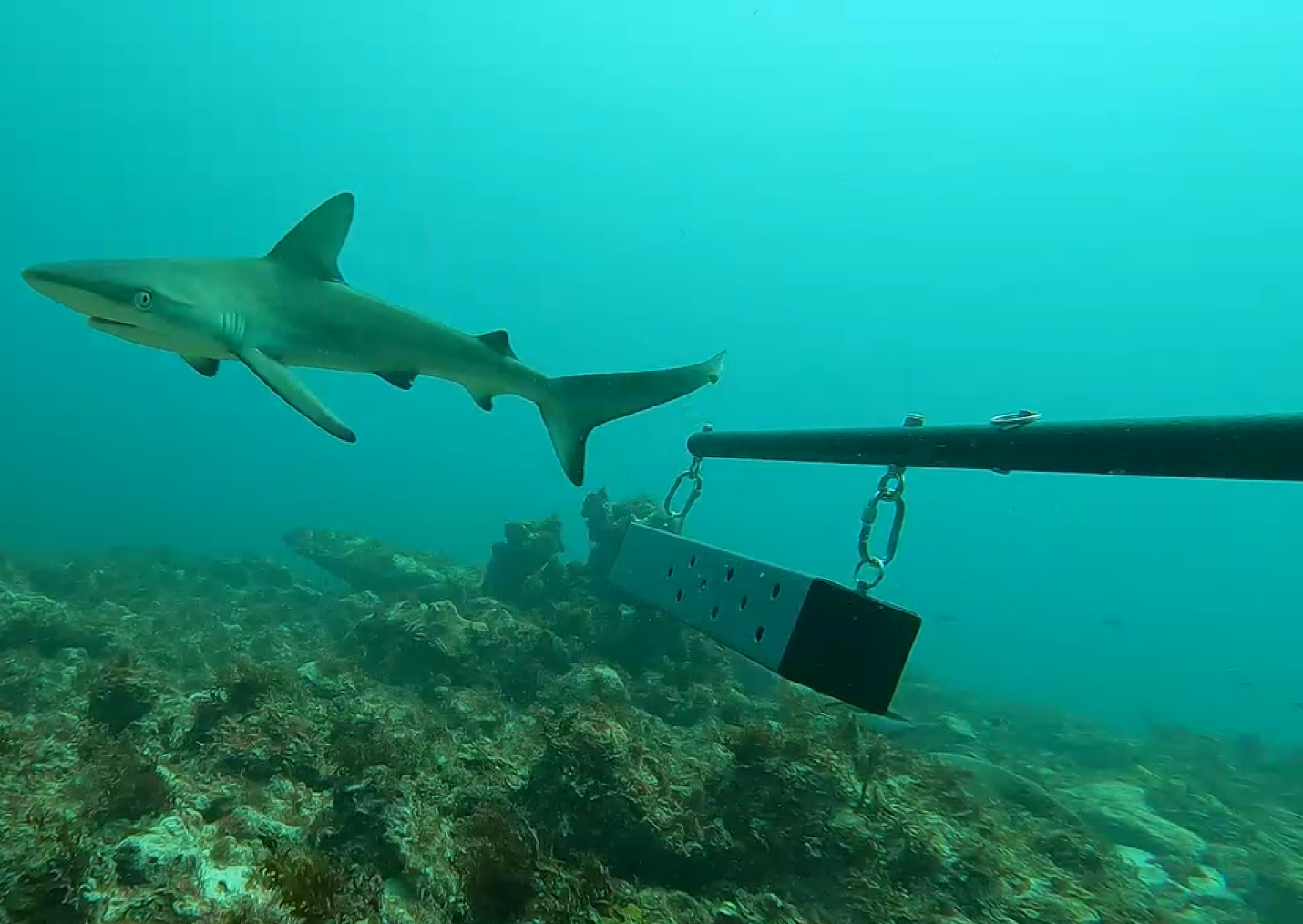Situated in the Eastern Caribbean, Anguilla’s seas are home to magnificent sharks and rays. Whilst traditional and contemporary knowledge amongst Anguillian fishers is rich, little is documented in the scientific literature about which species are present, which marine habitats they use, or how well these populations are doing.
Sharks in Anguilla are valued locally in a number of ways, from diving and tourism to a food source in the local communities. They are also caught as bycatch (non-target catch) in many commercial and artisanal fisheries, which is a worrying threat to these undocumented populations. Fear of sharks and rays also influences public perceptions of sharks, impacting their acceptance and conservation. With their ecological value as apex predators, more scientific research, interpretation, and understanding of traditional knowledge is needed to better understand local shark and ray populations. It’s also important that the Anguillan society are involved in the discussions towards these species and their management, to build evidence-based conservation that also reflects community needs.
University of Exeter Associate Professor Matthew Witt played a role in the Anguilla Shark Conservation (ASC) project, a three-year, multi-disciplinary initiative funded by the UK Government’s Darwin Plus programme, taking place from July 2021 to January 2025. The project aimed to develop a science-based understanding of shark and ray populations in Anguilla and lay the foundations for long-term conservation through meaningful community engagement.
Working with Marine Conservation Society UK, Anguilla National Trust (ANT), the Fisheries and Marine Resources Unit-Department of Natural Resources (Government of Anguilla), and a range of local partners, Matthew contributed scientific expertise, alongside community research methods from MCSUK and ANT to help develop Anguilla’s Shark Research Action Plan.

Integrating Research and Local Knowledge for Marine Conservation
Despite the rich local knowledge, at the start of the project, very little was formally known about the sharks and rays in Anguilla’s waters. Based on local fishers’ knowledge, Baited Remote Underwater Video Systems (BRUVs) were deployed throughout the island’s marine environment to assess and record more information about the species present, such as how many there are, what ages they might be, and in which habitats they spend their time. This allows the project team to build an extensive dataset on these animals, and create a ‘baseline’ understanding.
There was also limited understanding beyond local knowledge about the nature and value of shark and ray fishing in Anguilla. By working with the local community, we were able to better understand Anguilla’s fisheries, their sustainability, and importance to livelihoods. The BRUVs recorded at 12 different species of sharks and rays (10 shark and 2 ray) in Anguilla’s waters, which included the official recording of 4 shark species in Anguilla’s waters for the first time, such as the Atlantic sixgill shark, a rarely seen deep-sea species.

Listening to Community Voices
A key component of the ASC project was the Community Voice Method (CVM) performed by the Marine Conservation Society UK, which involved interviewing on film a variety of residents across Anguilla. Working closely with local partners, the MCSUK team were able to gather a wide range of perspectives on sharks and rays from across these communities. They conducted and filmed interviews with fishers, restaurant owners, dive operators, educators, students, and government representatives to document their views, values, and knowledge. The resulting CVM film was shown at a series of workshops held around the island, sparking thoughtful discussions about conservation, co-existence, and local priorities.
This community-driven approach ensured that the final Shark Research Action Plan was informed by cultural values, traditional knowledge, local experience and by scientific data.
Community outreach and education
In April 2024, as part of the Government of Anguilla’s ‘BLUE Week’ programme, which promotes and celebrates Anguilla’s marine environment and blue economy, Matthew and other project staff ran a half-day training workshop attended by several commercial and artisan fishers. This workshop focused on the benefits and applications of bycatch reduction devices, specifically SharkGuard, a bycatch reduction device developed by University of Exeter partners FishTek Marine, which uses electrical pulses to deter sharks from longline fisheries hooks.
In 2024, the project also ran a number of community outreach events focused on raising public awareness of sharks and sustainable fisheries. This included showcasing sharks and shark-related research at two public environmental exhibitions (with over 100 attendees), Anguilla BLUE Week film night (100 attendees) and a trivia night which included questions about Anguilla’s shark and ray species, along with a natural history presentation about these animals – sharing some of highlights from the more than 250 BRUV deployments around Anguilla.
Although the project concluded at end of January 2025, the team continues to explore further opportunities to expand our knowledge of Anguilla’s shark and ray populations through both biological and social research, with the goal of informing a full conservation and management plan for sharks and rays in Anguilla. They have recently received news of a new Darwin Local grant to ANT to enable acoustic tracking of Caribbean reef sharks in Anguilla’s waters, Associate Professor Witt will return to Anguilla in the autumn to work with the team to start this new and exciting project.

The Anguilla Shark Conservation project is a Darwin Plus funded project, lead by Marine Conservation Society UK, in collaboration with University of Exeter, Government of Anguilla and Anguilla National Trust. To find out more about the project and see its annual reports, visit the Darwin Initiative website here.

